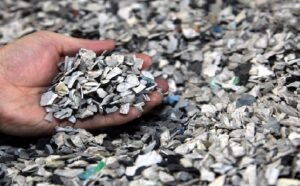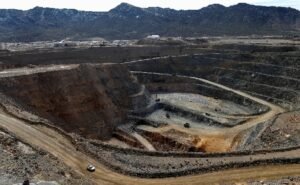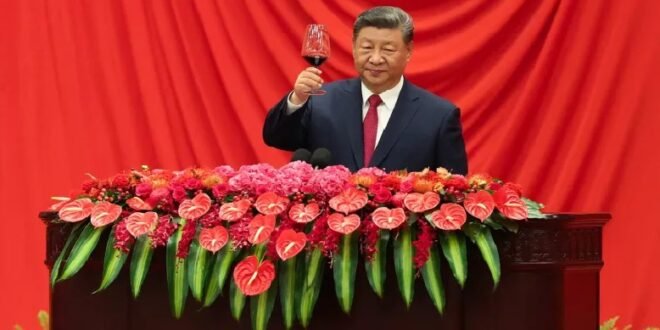11-10-2025
BEIJING: China tightened export controls for critical rare-earth metals on Thursday.
The new restrictions were announced by the Chinese Ministry of Commerce, and come ahead of an expected meeting between Chinese President Xi Jinping and United States President Donald Trump’s later this month.
 The world’s two largest economies have been locked in trade negotiations aimed at calming tensions, after they raised tit-for-tat tariffs against each other earlier this year, before then agreeing to pull back on some of those levies.
The world’s two largest economies have been locked in trade negotiations aimed at calming tensions, after they raised tit-for-tat tariffs against each other earlier this year, before then agreeing to pull back on some of those levies.
Rare-earth metals are one of China’s major levers of influence with the US.
In “announcement number 61 of 2025”, China said it was increasing export controls for five rare-earth metals in addition to the seven it announced in April this year.
The five metals added to the list are holmium, erbium, thulium, europium and ytterbium.
The seven minerals China placed export restrictions on earlier this year are samarium, gadolinium, terbium, dysprosium, lutetium, scandium and yttrium.
There are 17 rare-earth metals in total, the 15 lanthanides (metallic elements) on the periodic table; scandium; and yttrium. China now has export restrictions on 12 of them.
In addition, on Thursday, China also placed restrictions on the export of specialist technological equipment used to refine rare-earth metals. Most of these restrictions will go into effect from December 1.
The announcement means that foreign companies will need to obtain special approvals from Beijing if they wish to export rare-earth magnets and certain semiconductor materials that have at least 0.1 percent heavy rare-earth metals from China.
To obtain the licence, foreign companies must explain the intended use of the product they wish to use Chinese rare-earth metals to make.
 China cited national security interests as the reason for these new restrictions.
China cited national security interests as the reason for these new restrictions.
“Rare-earth-related items have dual-use properties for both civilian and military applications. Implementing export controls on them is an international practice,” a Chinese Ministry of Commerce spokesperson told reporters on Thursday.
The spokesperson added that “certain” foreign organizations and individuals have been directly transferring or processing and then transferring controlled rare-earth materials originating from China to “relevant organizations and individuals directly or indirectly for military and other sensitive applications”.
“This has caused significant damage or posed potential threats to China’s national security and interests, adversely affected international peace and stability, and hindered global non-proliferation efforts.”
Rare-earth metals are essential for the production of technological equipment such as electric cars, lithium ion batteries, LED televisions and camera lenses.
The metals are crucial for the US defence industry. According to the Center for Strategic and International Studies (CSIS) think tank, rare earths are used to manufacture F-35 fighter jets, Virginia and Columbia-class submarines, Tomahawk missiles, radar systems, Predator unmanned aerial vehicles and the Joint Direct Attack Munition series of smart bombs.
Additionally, rare earths are used to create semiconductors, which are used in artificial intelligence (AI) technology.
Why does this matter now?
This is a strategic move on the part of China, analysts say.
China is the largest producer of these rare-earth metals. It mines at least 60 percent and processes about 90 percent of the world’s rare-earth metals, CSIS reported in 2024. (Int’l Monitoring Desk)
 Pressmediaofindia
Pressmediaofindia




